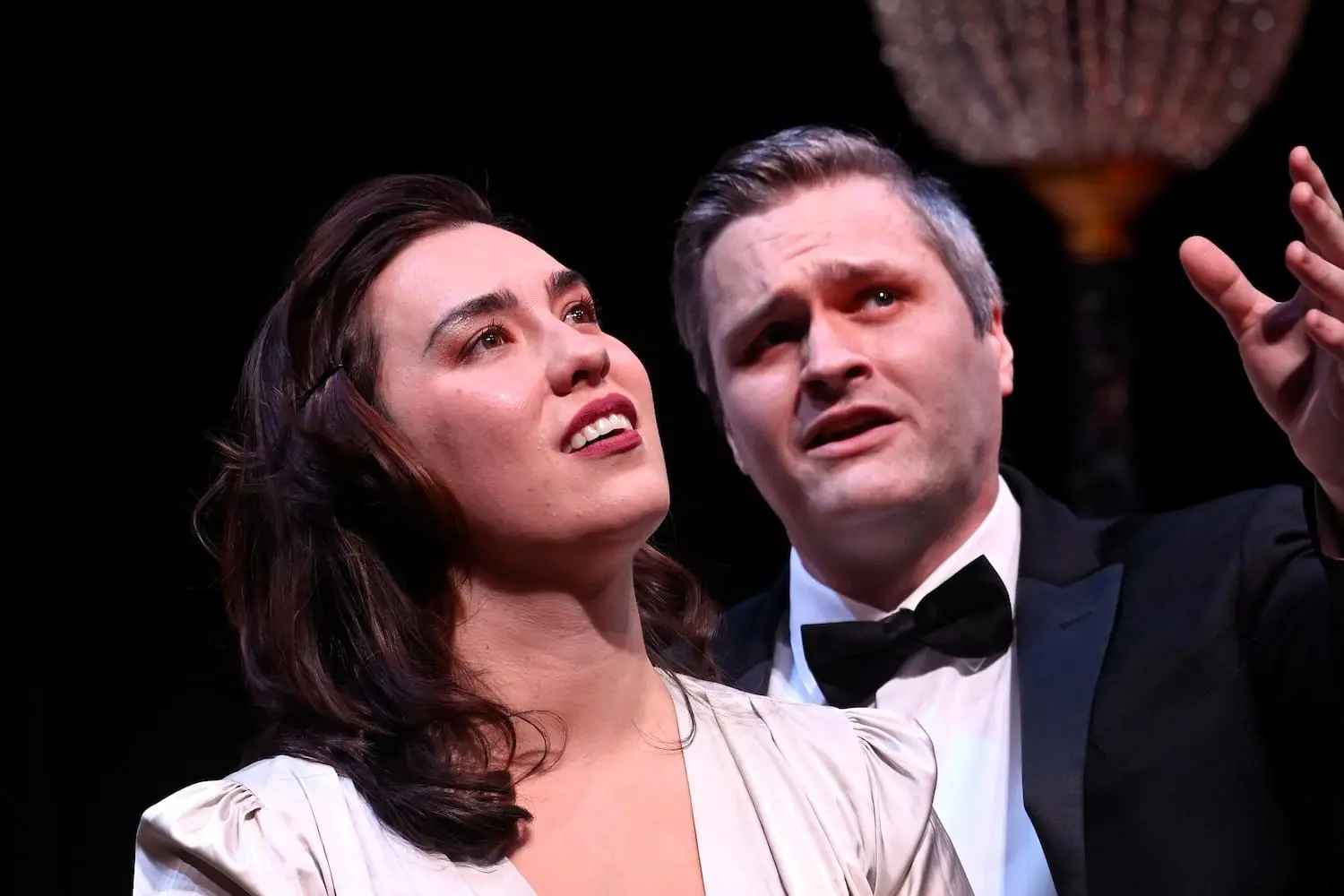I admit that I have watched my fair share of Hallmark Christmas movies. Although they are scorned by serious television viewers, there is something comfortable about their predictable plots, gorgeous scenery and attractive stars.
Try this for a Hallmark storyline: a very young and very controlling rich woman is being pursued by men who are only interested in her money, so she invents a fiancé and gives him the first name which pops into her mind – a name which, by the way, is the real name of a genuine pig farmer. The farmer learns about this lie in the local paper and arrives at her estate to say that he is interested in her. But there’s a problem. Her eye has already been caught by a skilled, handsome new farm manager who she finds attractive yet arrogant. Little does she know that her new manager is actually a real Count earning money for his sister’s dowry, and she is oblivious to the fact that this sister is interested in the pig farmer. Who will end up with whom? Will true love conquer all pride and suspicions? Will the young, rich woman reconcile after a last-minute argument with the handsome undercover Count? Welcome to the world of Hallmark and to the plot of a famous Hungarian Hallmark production, also known as the operetta Countess Maritza.
I attended the sold-out matinee of Countess Maritza, presented by the Toronto Operetta Theatre (TOT) at the Jane Mallett Theatre on December 29th. This is the fifth time in 40 years that TOT has produced Countess Maritza for very obvious reasons. The music is glorious and reminiscent of elegant Viennese operettas, but it has the syncopation and passion common in a score composed by Hungarian Emmerich Kálmán.
Countess Martiza premiered 100 years ago in Vienna at the Theater an der Wien during the Silver Age of Operetta, a poignant time when the world was still reeling from World War I while bracing itself for the Anschluss in 1938. Kálmán was Jewish, and he and his two Jewish German librettists – Julius Brammer and Alfred Grünwald – were forced into exile. Miraculously, the banned Maritza score survived the bombing of the Bremen opera house, and its old-world feeling has continued to charm people a century later. Judging by the crowd at the Jane Mallett Theatre, this work continues to have an ongoing intergenerational appeal.

Photo Credit: Gary Beechey
Holly Chaplin as the Countess Maritza
Under the direction of conductor Derek Bate, the ten-piece orchestra sailed through buoyant passages and difficult syncopations, while also capturing the subtle minor variances and tempo changes in the Csárdás passages. The small orchestra had a full sound, with particular kudos to percussionist Mark Duggan. The ensemble’s sensitive playing wrapped around the soloists’ voices like a warm blanket on a cold afternoon.
In the title role, Holly Chaplin was conflicted, vivacious and expressive. Her coloratura was perfectly suited to Kálmán’s arching and expansive high notes, and she skilfully navigated the different musical styles. Scott Rumble was a charismatic and vocally impressive Tassilo. He showcased a voice with precise diction and Wagnerian strength which was also capable of stirring tenderness. Rumble also danced up a storm and acted in a subtly nuanced way. Chaplin and Rumble’s duets were beautifully crafted, and their chemistry onstage solicited “aww’s” from the most romantically inclined audience members.
With his smooth tenor voice and excellent comedic timing, Joshua Clemenger made a first-class Baron Zsupán. Patricia’s Wrigglesworth’s Lisa was a delight to watch, never overacted and always reacting to fellow artists in an understated yet expressive way while also treating listeners to her lush lower vocal tones. Wrigglesworth’s and Clemenger’s duet, “When I Start Dreaming,” was well balanced and seamlessly phrased. Sebastien Belcourt was a versatile Popolescu, Austin Larusson was a hilariously overacted Penižek, while Meghan Symon was an extremely amusing Princess Božena.
Bravi to the eleven chorus members who sang robustly and handled Guillermo Silva-Marin’s choreography and stage directions with precision and grace. The costumes were colourful and attractive, while the props were effective and functional. The lighting design, also by General Director Silva-Marin, was elegantly simple.
If you want to get that final magical holiday infusion before the January blues set it, head into Toronto and see Countess Maritza. But I have to issue a spoiler alert: in true Hallmark manner, the sparring lead couple reconcile in the final ten minutes and end up living happily ever after.
Opera Canada depends on the generous contributions of its supporters to bring readers outstanding, in-depth coverage of opera in Canada and beyond. Please consider subscribing or donating today.














